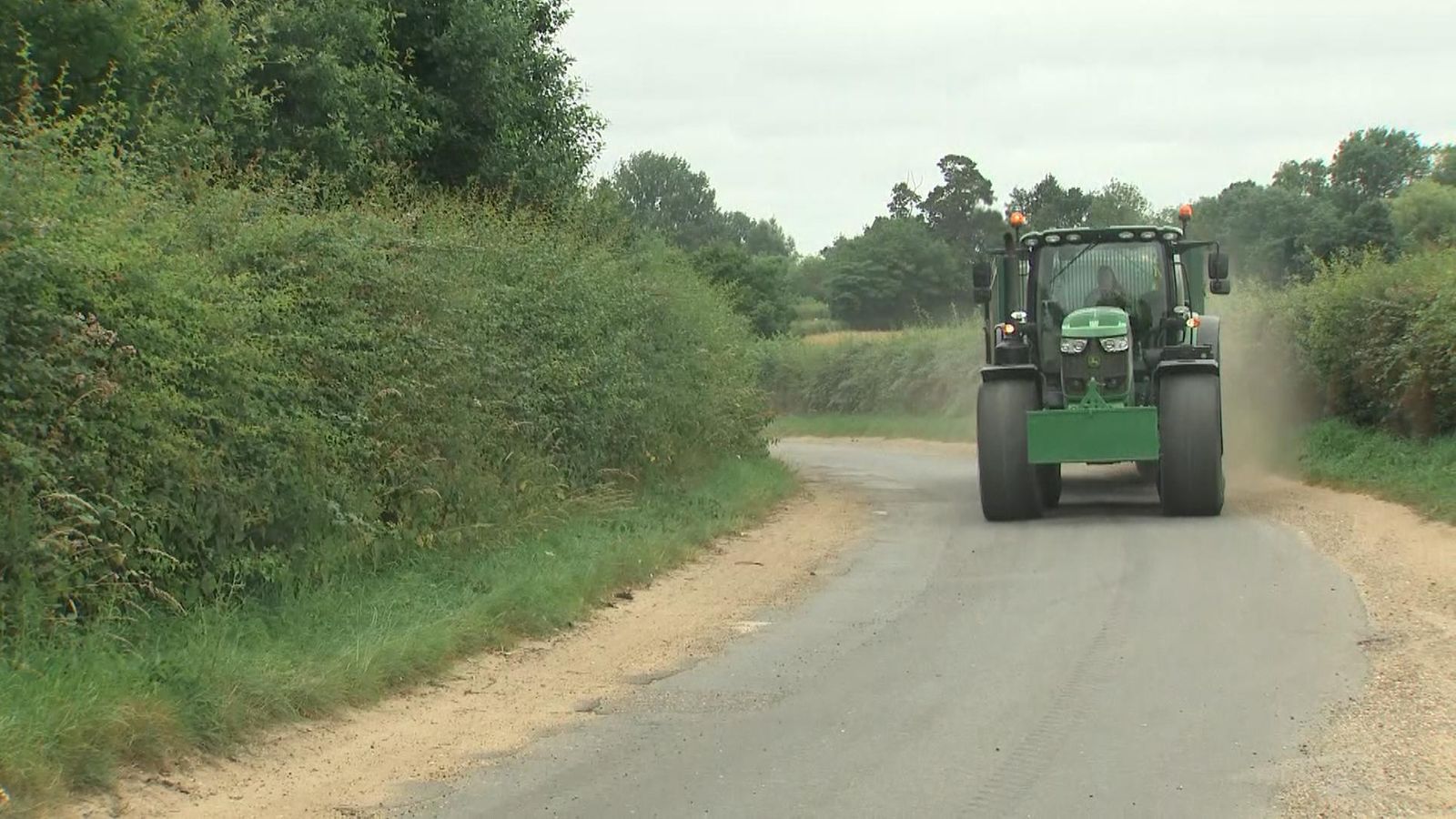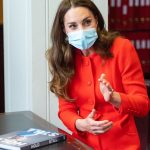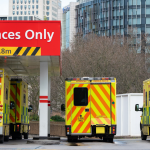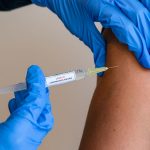Under sweltering skies in Norfolk, the harvest is coming in.
It’s the busiest time of the year for agricultural production here and across the UK, but despite the perfect weather there is a shadow across the industry.
Farming, like other critical sectors, is struggling to stay on track because of the impact of self-isolation rules, determined in large part by the NHS Test & Trace app.
Latest coronavirus updates from the UK and around the world
You may not always get a signal in rural Britain but that has not stopped the pings. The government has offered no respite either, pointedly leaving farming out of the block-exemption for food producers and distributors.
Announced at 10pm on Thursday, under government embargo and after days of confusion and mixed messages, farming is one of many industries still struggling to understand what the proposed test-and-release regime means for them.
“I think there’s real frustration that at the moment we don’t know exactly what it means for our members and their businesses,” says Tom Bradshaw, vice-president of the National Farmers’ Union.
“And if you’re looking at trying to secure continuity of supply right the way through, then you have to look at all parts of that supply chain, and not just think about the processing facilities further up the supply chain.
“The peas in the field don’t know whether it’s 16 August or 22 July, so when they’re ready to harvest we’ve got to be able to harvest them, and unfortunately we have got businesses now that are under real pressure because people are having to self-isolate.”
Farmers are not alone.
One step up the chain from the farm gate, meat processors are also confused. Some will be included in the up to 500 or so critical sites environment secretary George Eustace said would be covered, but it’s still not clear which.
Nick Allen, chief executive of the British Meat Processors Association, told Sky News: “We desperately need this detail and need it quickly. The last we heard, communication could be coming on Monday, so we have a long weekend to get through yet. We need a sense of urgency here.”
There is also continuing disquiet among supermarkets at the failure to include their retail staff in the exemption. Without them they argue shelves don’t get stacked or online orders picked, and the weakness is just shifted to another link in the chain.
Richard Walker, managing director at Iceland, said: “We’re encouraged to hear that supermarket depot workers and food manufacturers will be exempt from government rules, but deeply disappointed to see supermarket store workers omitted from the list.
“The food supply chain only works if teams are in place to support at each stage – there’s no point in fixing the manufacturing and logistics issues if there is no one to put products on the shelves, serve customers at the till and deliver to their homes.”
With even those industries covered in part by the exemption angry it is no surprise those left out altogether are furious.
Please use Chrome browser for a more accessible video player
Hospitality businesses recovering from almost a year of interrupted trade find themselves forced to close in one of the busiest periods of the year because staff are forced to stay at home.
Many argue that instead of waiting until 16 August to abandon the self-isolation requirement for those who have been double-jabbed, the date should immediately be brought forward.
Subscribe to the All Out Politics podcast on Apple Podcasts, Google Podcasts, Spotify, Spreaker
“We all want to stop the spread of the virus, but we need a more pragmatic solution from government,” said Kate Nicholls of UK Hospitality.
“Those who are fully vaccinated should be able to test after a ping and, subject to a negative result, carry on with their lives. For those not fully vaccinated two negative tests should be sufficient to return to work.”
But government scientists are adamant it is the virus, not the app, that is out of control.
This cuts to the heart of the tension between ministers and their advisers after all restrictions on social distancing and mixing were lifted on Monday while the app remains set for lockdown conditions.
“The ‘pingdemic’ is because we have a pandemic,” says Dr Jenny Harries, Chief Executive of the UK Health Security Agency.
“This is the first time really that we have been on an upward curve, an upward trajectory. So, it is inevitable that a large number of people will be asked to isolate. And I think the critical thing about this though is that self isolation is a really important component.
“We know that you’re five times more likely to become a case yourself if you’ve been in close contact, and this is the way that we can stop transmission occurring through the country so this is not an inconvenience, it is actually an essential intervention for all of us.”
Please use Chrome browser for a more accessible video player
With the prime minister and chancellor only reluctantly agreeing with Ms Harries after they were pinged having met the COVID-positive health secretary, it is little wonder some in business and the general public are chafing against the continued power of the app.
With three weeks to go until the rules lift for the double-jabbed, confidence and compliance will face further testing days.






















